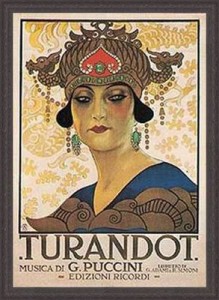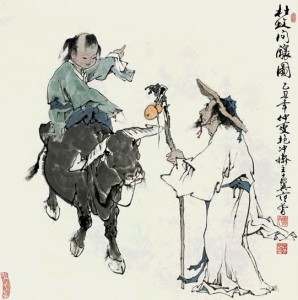Tenor aria from Puccini’s opera “Turandot”
This is Pavarotti’s signature aria. See him singing it in NYC, 14 Janurary 1980: http://www.youtube.com/watch?v=TOfC9LfR3PI&feature=related
And in 1994 in Los Angeles: http://www.youtube.com/watch?v=VATmgtmR5o4&NR=1
His last performance of this aria was at the 2006 Turin Winter Olympics opening ceremony’s ending: http://www.youtube.com/watch?v=O0Sx5lbVlQA&NR=1
“不准任何人睡” (意) 阿當米 与 西蒙尼 普词
普茨尼歌劇”莬兰杜”的男高音咏叹調
Tr. YK Chan 陈耀国译
Nessun dorma! Nessun dorma! 不准任何人睡!不准任何人睡!
Tu pure, o, Principessa, 你, 噢,纯诘的公主,
nella tua fredda stanza, 在你寒冷的房间
guardi le stele 看着星星
che tremano d’amore 在爱情
e di speranza. 及希望中颤抖。
Ma il mio mistero e chiuso in me, 但是我的秘密深鎖我身中,
il nome mio nessun saprá! 无人知道我的名字!
No, no, sulla tua bocca lo diró 不,不,我將在你的口上说出它
quando la luce splenderá! 就是在天亮的时刻!
che ti fa mia! 使你归屬我!
e noi dovrem, ahimé, morir) 而我们却不幸的死亡。)
Tramontate, stelle! 星星,降落吧!
Tramontate, stelle! 星星,降落吧!
All’alba vinceró! 黎明时我将获胜!
vinceró, vinceró! 我将获胜!我将获胜!




